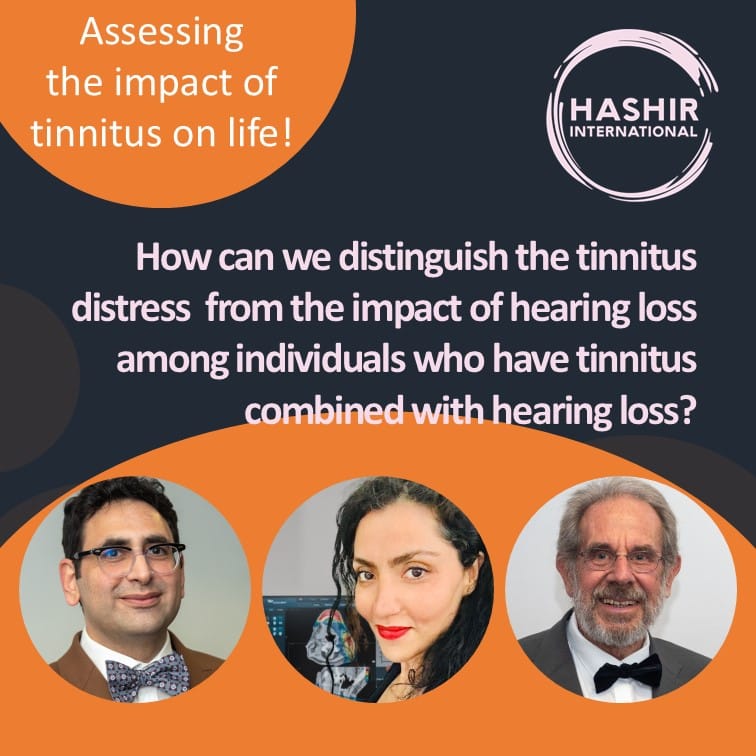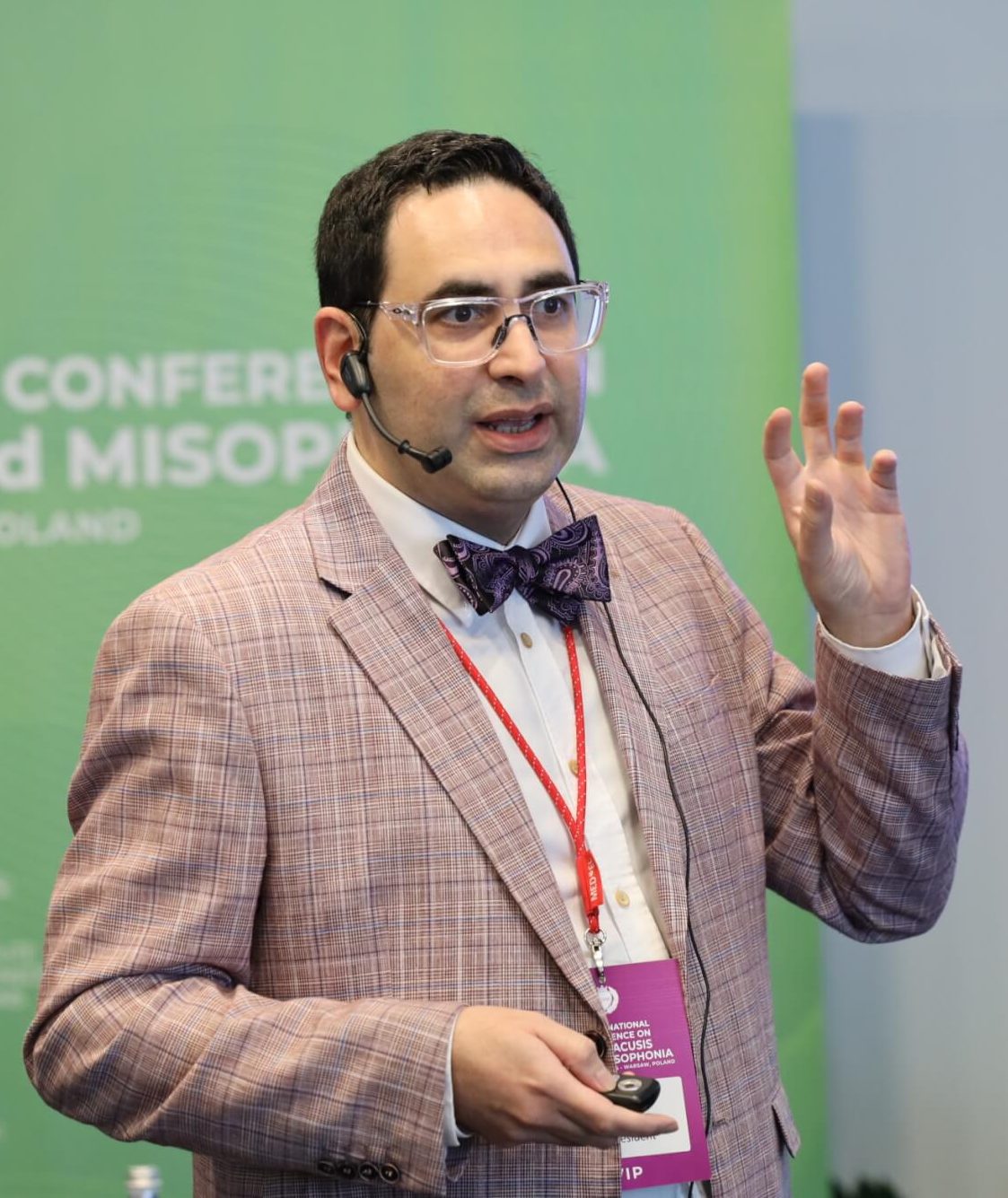
Hearing loss is prevalent among people with tinnitus. Our past research conducted in collaboration with Professor Richard Salvi from the Centre for Hearing and Deafness, University at Buffalo, New York showed that the loudness of tinnitus tends to increase with increasing severity of the hearing loss. Click here to watch a video about the relationship between tinnitus loudness and hearing loss. However, recent studies shown that tinnitus does not interfere with hearing and individuals with tinnitus can detect and discriminate sounds as good as people with matched hearing thresholds in a control group with no tinnitus. When tinnitus is combined with hearing loss, the difficulties in hearing are caused primarily by the hearing loss, not by the tinnitus. However, the individuals with tinnitus combined with hearing loss may blame their tinnitus for their hearing problems as it might feel that way. Tinnitus distress if often measured with the use of self-report questionnaires. Tinnitus questionnaires that include items related to hearing introduce a measurement bias as they might mix the construct of “hearing loss impact” with “tinnitus impact”. Although, tinnitus impact might be different between people with tinnitus combined with hearing loss and people with tinnitus alone; to investigate this, tools are needed that measure the impact of tinnitus separately from the impact of hearing loss. In this study, researchers at Hashir International Institute examined the performance of Tinnitus Impact Questionnaire (TIQ), which in contrast to the commonly used tinnitus questionnaires, is intended to give a pure assessment of the impact of tinnitus by not including items related to hearing loss or tinnitus loudness. For the full report of this study by Dr Hashir Aazh, Professor Brian C.J. Moore and Dr Mercede Erfanian click here.
The study concluded:
Our director, Dr Hashir Aazh said:

“There is no correlation between TIQ scores and measures of hearing thresholds. Results of this study which was published in PLoS One medical journal shown that the scores for the TIQ items measure the construct of “tinnitus impact” without being influenced by the individuals’ hearing status. This is a very important property of the TIQ, as it gives patients, researchers, and clinicians a brief tool that is specific to assessing the impact of tinnitus free from any effects of comorbid hearing impairment. Most of the commonly used tinnitus questionnaires show worse scores among people with hearing loss combined with tinnitus compared to people with tinnitus without hearing loss even when the impact of tinnitus is not different between them. TIQ has been designed to minimise this measurement bias and our results demonstrate that this aim have been achieved. In contrast, the scores for other tools for assessing tinnitus are significantly correlated with degree of hearing loss. The source of measurement bias in other questionnaires is likely to be related to inclusion of items that assess hearing problems rather than the impact of tinnitus. For example, researchers at the centre for speech and language therapy and hearing science, Cardiff Metropolitan University reported that tinnitus severity as measured via the Tinnitus Functional Index (TFI) was significantly greater for tinnitus patients with hearing loss than for tinnitus patients with normal hearing thresholds. In fact, some items of the TFI assess the impact of hearing loss. It is worth mentioning that tinnitus impact may be more severe among patients with tinnitus combined with hearing compared with people with tinnitus alone. However, to test this idea we need tools such as TIQ that can measure the impact of tinnitus independently from the impact of hearing loss on the patient’s life. We are hopeful that TIQ can be useful tool in future tinnitus research.”
The TIQ assesses how often respondents experience a number of problems because of tinnitus, over a two-week period. To gain free access to the TIQ, click here. TIQ was developed based on the common complaints of tinnitus patients. The items were chosen to explore the effect of tinnitus on day-to-day activities and mood. Each situation described in the TIQ is assigned a score of 0, 1, 2, or 3, based on the number of days it occurred over a 2-week period: 0–1 days, 2–6 days, 7–10 days, and 11–14 days. Overall scores range from 0 to 21.
For further information, please contact:
Hashir International Institute, 167-169 Great Portland Street, 5th Floor, London, W1W 5PF
Hashir International Institute, 54 Quarry Street, Guildford. GU1 3UA
admin@hashirtinnitusclinic.com
About Hashir International Institute:
Hashir International is an independent research institute and treatment centre dedicated to improving the diagnostic process and rehabilitation programs for patients experiencing misophonia, tinnitus and hyperacusis. They offer specialist training courses, ethical review of research proposals, research design, research sponsorship, and supervising MSc and PhD students.